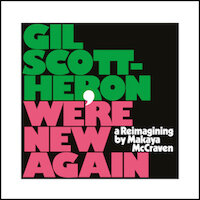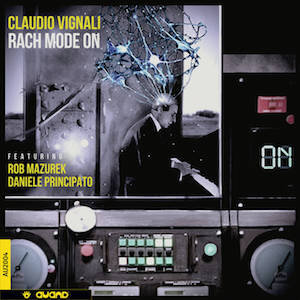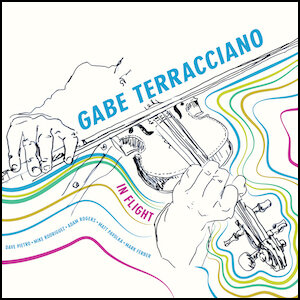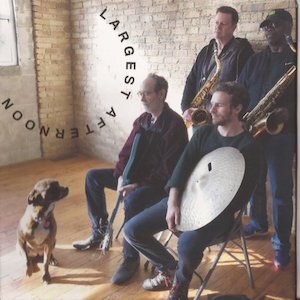Label: Anzic Records, 2020
Personnel - Luis Deniz: alto saxophone; Nir Felder: guitar; Rich Brown: electric bass; Ernesto Cervini: drums.
For his sixth Anzic outing, Canadian drummer Ernesto Cervini gathers a thrilling new quartet in which to hear his talents. Its members are alto saxophonist Luis Deniz, bassist Rich Brown, and New York-based guitarist Nir Felder. Produced by Cervini and Toronto bassist Dan Fortin, Tetrahedron embodies a stylistically diversified song lineup of both originals and covers.
And the group starts off with the right foot, delivering a loose-limbed rendition of the famous standard “Softly As In A Morning Sunrise”, here beautifully introduced by the dark/light contrasts of the electric bass, and then uplifted with a partly dub, partly free funk groove over which guitar and sax pinpoint their communicative interplay. The main statement, swaggeringly professed at the end, exhibits some rhythmic nuances.
Apart from the bandleader, who brought in four self-penned compositions, Brown was the only member of the quartet to contribute an original. His “Forward Motion”provides great moments, maturing into a hype jazz bass figure that feeds the gravity, after an inception that demonstrates Felder’s guitaristic elasticity over drums. Cervini and Brown then fixate on a straightforward swinging routine while Deniz disseminates his joie de vivre with a frantic sax romp. The drummer also stretches here and the guitar work is as efficient as on the quieter “Angelicus”, a workpiece taken from the rich repertoire of arranger/composer/conductor Vince Mendoza. This version arrives to our ears impregnated with erudite classical innuendos and folk-like melodies.
Cervini’s compositions brim with energy, and if “Boo Radley”, composed for the reclusive character of To Kill a Mockingbird, feels like a personal interpretation of Coltrane’s “Giant Steps” with a nod to jazz fusion, then “Stro”, a minor blues dedicated to the former Toronto Blue Jays pitcher Marcus Stroman, straddles the musical worlds of The Lounge Lizards and Steve Coleman, sources of an artsy punk-ish jazz and M-base movements, respectively. Also, the closer “The Sneaky Two”, another groove-oriented procedure, soars high with outgoing statements from guitar, sax, and bass.
To further enrich the stylistic diversity, Bunky Green’s “Summit Song” evokes a bunch of jazz giants with its strong hard-bop flavors.
Cervini has a fearless attitude toward sound, and even with strong inspirations stemming from the past, he is not afraid to plunge into new ideas. This group proves to be a splendid match and the music selection fits their purpose.
Grade A-
Favorite Tracks:
01 - Softly As In a Morning Sunrise ► 02 - Forward Motion ► 08 - The Sneaky Two










































